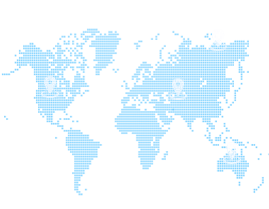What Is A Cloud Computing Platform?
Most businesses rely on cloud computing to manage their IT infrastructure. Very few businesses can afford the initial expense of setting up an on-site network with dedicated servers and a large IT team to manage the platform and data storage.
At its core, cloud computing is about the storage and transfer of data over the internet. Cloud computing services store your data on their remote servers, which means that you can access it through a personal computer, mobile device, or laptop, regardless of where you are. As long as you have the right credentials, you can collaborate with people across the world.
Cloud platforms have revolutionized how people work. Instead of having all of your data on your work PC, you can use your cloud services to work wherever and whenever you want. Cloud computing fosters collaboration between teams that may be continents apart, allowing them to work on the same project efficiently.
Another advantage of having a cloud provider is that you have a secure backup of your data. Cloud providers have plenty of security measures that will help keep your data safe. It’s an essential part of any disaster recovery plan.
At the moment, there are two major players in the public cloud computing platform world: Microsoft Azure Cloud Services and Amazon Web Services (AWS).
The Four Main Components Of Azure Services
You can access three different types of Microsoft Azure services depending on your needs. These are:
- Infrastructure as a Service (IaaS) is the most basic, foundational cloud layer which allows users to process and store information and use the platform as a business network.
- Platform as a Service (PaaS) includes access to an operating system, database, web services, and a programming environment for software developers. Instead of worrying about infrastructure and hardware, your developers can focus on application development through the Microsoft Azure portal.
- Software as a Service (SaaS) is the portion of Microsoft Azure concerned with centrally-managed software. Instead of managing a software program manually, you can use SaaS to provide a single version of the application for every one of your employees.
So which of these is suitable for your business? If you need virtual machines or want access to the latest operating systems, sticking to one service is fine. However, you may find that you’ll need multiple services to get the most out of your Microsoft Azure platform. Take a look at Microsoft’s Azure tutorial page to get a good idea of which services you need.
Compute
Microsoft Azure offers a platform for intensive computing operations. The system takes advantage of Azure resources to develop, deploy and host apps on a virtual machine. You can scale up to thousands of Azure virtual machines in minutes, allowing for batch processing to handle large-scale computational tasks.
Azure Compute services are excellent for big data analytics, rapid deployment of web apps, and large-scale development for organizations.
Storage
Azure Storage provides terabytes of file storage and the management tools needed to organize and process that data. Blob storage allows you to store unstructured data like text and binary data such as media files and application executables.
You can also use Microsoft Azure file storage services to migrate legacy applications without the need for expensive rewrites.
Database
If you use SQL and NoSQL tools, you’ll love Microsoft Azure’s Database as a Service. The SQL database is cloud-based instead of server-based but offers the same functionality. Document DB is a fully managed service that provides fast and predictable performance.
Content Delivery Network (CDN)
If you have a global network, you may find that certain regions take longer to access data than others. The Microsoft Azure content delivery network caches data in strategic locations, such as a data center nearby, allowing for faster content delivery.
Some of the components of this service include a VPN gateway to secure traffic across public connections. The Azure traffic manager helps control traffic from various services and routes them to the appropriate data centers for optimal performance.
Other components of Microsoft Azure
- Web and Mobile Services. This range of services allows you to build and host websites and mobile apps without the need for dedicated infrastructure. They include a highly scalable mobile development platform as well as platforms for API and web development.
- Azure Networking. This service provides the formation of a virtual network. It also balances traffic from the internet to virtual machines for excellent performance.
- Azure Resource Manager. The resource manager can show you available resources and also control who gets access to these resources. You can also use the resource manager in conjunction with the automation app to automate time-consuming, repetitive tasks.
- Security. Azure has several security features, including Azure Key Vault, Multi-Factor Authentication, and Azure Active Directory that manages employee identities. Azure Access Management ensures that only people with explicit permission can access information and resources.
Get Started With A Microsoft Azure Tutorial
The best way to get familiar with cloud concepts and learn Microsoft Azure is by doing and exploring. Microsoft offers a free account with many of the common Azure cloud products. You also get credit to use if you decide to continue using the platform after your Microsoft Azure tutorial. You can also access Microsoft’s Azure tutorial via their website, which teaches you the basics of all of their services.
If an unscripted Azure tutorial isn’t enough for you and you need more guided assistance, don’t hesitate to get in touch with Network Elites. We offer managed IT services, including getting you started with Microsoft Azure. Whether you want an Azure tutorial or want us to handle the entire system for you, we’re here to help.






